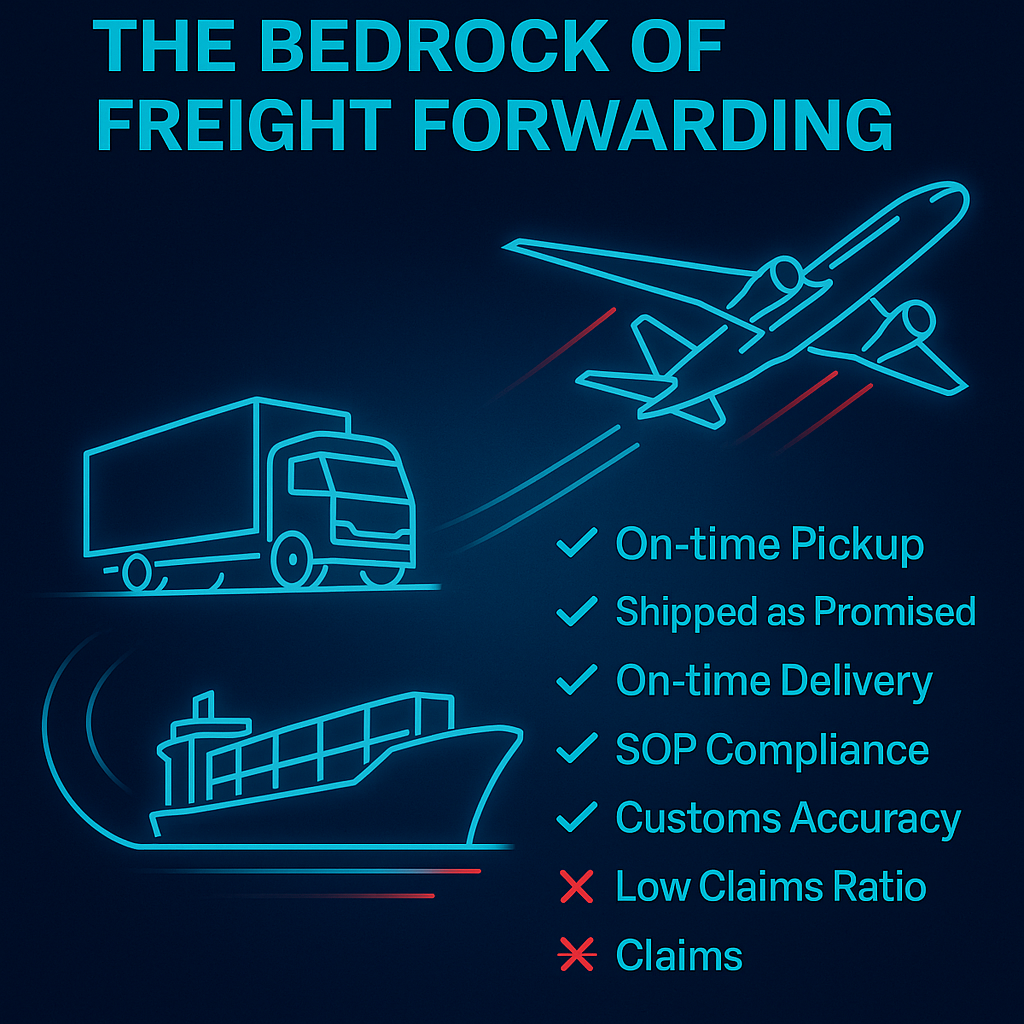Reliability & Execution: The Bedrock of Freight Forwarding Performance

In freight forwarding, reliability is more than a KPI—it is the foundation of trust between shipper and forwarder. A forwarder may win a contract on price, but long-term retention depends on consistent execution: on-time pickup, accurate customs declarations, and shipments delivered exactly as promised.
According to a McKinsey survey of supply chain leaders, over 70% rank execution reliability as their top priority, above cost optimization. This is particularly critical in industries like pharmaceuticals, automotive, and high-tech, where late deliveries can halt production lines or compromise product integrity.
Key indicators of reliability include:
- On-time pickup & delivery: The most visible and measurable elements of service.
- Shipment integrity: Cargo must move as contracted, without last-minute rollovers or routing changes.
- Compliance with SOPs: Especially vital for regulated verticals such as healthcare, chemicals, and aerospace.
- Customs accuracy: A single declaration error can trigger penalties or delays at the border.
- Claims ratio: The proportion of claims versus shipments is a direct reflection of operational discipline.
Industry benchmarks show best-in-class forwarders operate with a claims ratio below 0.5%, while lagging performers exceed 2%, eroding client confidence.
Reliability is not built overnight. It requires investment in process discipline, digital execution tools, and continuous performance monitoring. Platforms such as LogiScore provide shippers with transparent visibility into a forwarder’s reliability track record, shifting procurement decisions from promises to proven performance.
As supply chains face greater complexity—geopolitical shifts, capacity crunches, and sustainability requirements—execution excellence will increasingly define competitive advantage. Price may open the door, but reliability keeps it open.
Leave a Reply
You must be logged in to post a comment.